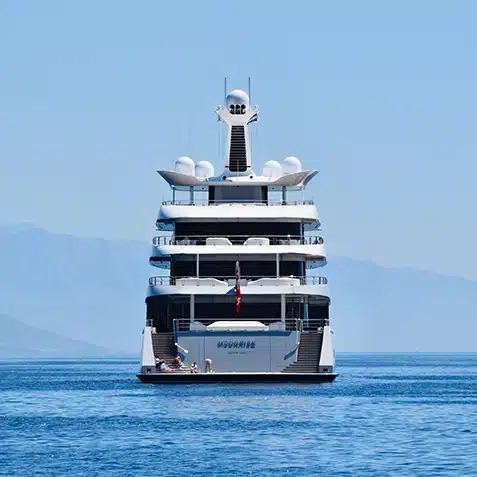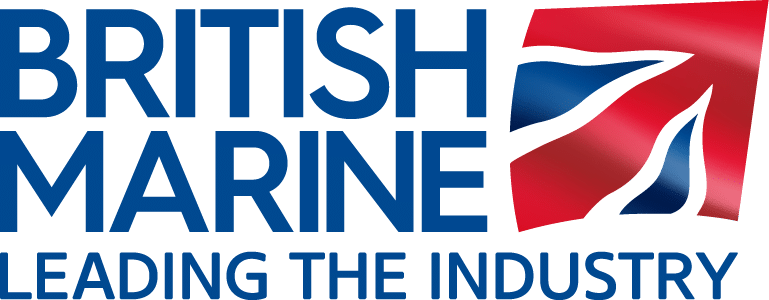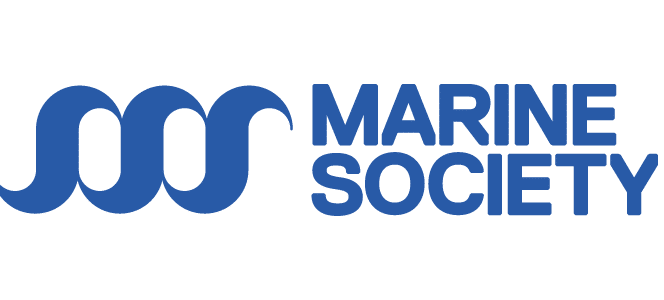Superyacht Surveying Course
Diploma in Superyacht Surveying
Superyacht Surveying
Maritime Training Academy’s Superyacht Surveying Diploma delivers professional training in the inspection, valuation and condition reporting of large yachts.
This specialised course supports surveyors, engineers and technical crew entering the high-value world of superyacht pre-purchase surveys, construction assessments and flag compliance inspections.

Professional Superyacht Surveying Qualification
Gain the expertise needed to inspect superyacht hulls, systems and interiors with confidence and accuracy.
Contact us below to enrol today, or speak with our experienced course advisors.

Duration:
12 - 18 months
Learn at your own pace
Online Course:
Study from anywhere

Cost:
Diploma: £3,195
Certificate: £2,295

Recognised by: 
Superyacht Surveying Diploma vs Certification
Choose the right path for your career:
Comprehensive Training: In hull inspections, structural condition reporting, onboard systems checks, valuation methods and flag state documentation.
Flexible Study Duration: 12 – 18 month depending when you enrol to the program, study online at your own pace, from anywhere in the world.
Marine Industry Career Opportunities: 100% Online, with access to our student learning portal
Long-Term Career Impact: Superyacht Surveyor, Pre-Purchase Survey Specialist, Refit and Repair Inspector, Flag State Compliance Consultant.
Global Recognition: Our Diplomas are recognised by the University of Portsmouth and are supported by industry associations.
Assignments: One assignment is required to be completed and submitted at the end of each module, based on that particular subject.
Certification: you will receive a PDF Digital certificate (Printed Certificate Completion Pack available).
Final Examination: There will be a final examination upon completing and submitting all student assignments (exams are sat in April or October).
Post-Nominal letters: On passing the Diploma you can also use these letters after your name: MTA Dip SYS
Digital Course Badge: Upon successful completion students will receive an exclusive course badge for use on business cards, LinkedIn profiles and website(s)!
Diploma - £3,195
A globally recognised qualification for careers in superyacht condition assessment, valuation and inspection reporting.
✔
✔
✔
✔
✔
✔
✔
✔
✔
✔
Certificate - £2,295
Specialist Superyacht Surveying Training without formal assessments, for those who do not require a recognised diploma.
✔
✔
✔
✔
✔
✔
Superyacht Surveying Curriculum: 11 Modules
Explore the inspection process for large yachts across hull structure, systems, safety features and onboard condition. This training includes detailed survey methodology, valuation principles, documentation protocols and refit inspections.
You’ll gain the confidence to deliver accurate surveys used for resale, compliance or refit planning in the global superyacht industry.
1. An Introduction to the Superyacht Industry and Superyacht Surveying
- Introduction
- Historical development
- Different types and styles of yacht
- The industry today designers, builder, brokers, insurers, managers and crew
- Flag state and classification
- Owners and their requirements
- Surveys and survey organisations
- The professional surveyor
- What makes a good surveyor?
- Types of surveys
- The role of the superyacht surveyor
- Where can the superyacht be found?
- Future trends
2. Regulatory Framework for Superyachts
- Legal concepts
- The law of contract
- The law of tort (negligence)
- Liability in contract and tort
- Responsibilities
- The expert witness and the law of evidence
- Maritime Law
- Admiralty law and jurisdiction
- International maritime law
- Shipboard documentation
- Codes of practice for commercially operated yachts
- Maritime labour convention (MLC)
- The Flag State
- Pollution
- Governmental control of shipping
- Port state control
- Marine insurance
- Types of insurance cover
- Risks covered by P&I insurance
- Classification societies
- Claims and surveyor
3. Surveying the Main Engines and Auxiliaries
- Main engine types and associated issues
- The propulsion system
- Auxiliaries, generators and associated issues
- Control systems
- Exhaust systems
- Dynamic Positioning (DP)
- Gathering and recording information
- Recommendations and responsibility
- Planning, procedures and tools
4. Surveying the Onboard Systems
- Superyacht Systems
- Oil Systems
- Seawater Plumbing Systems
- Fresh Water Plumbing Systems
- Black And Grey Water Systems
- Heating, Ventilation And Air Conditioning (HVAC) Systems
- Electrical Systems
- Navigation Systems
- Fire Detection And Alarm System
- Stabilisers And Thrusters
5. Superyacht Toys
- Introduction
- Helicopters
- Submarines
- Tenders
- Watersports Safety
- Inflatables
- Jet Skis and WaveRunners
- Diving
- Drones
- Miscellaneous
6. Surveying the Interior
- Introduction
- Inventories
- Assessing Training Levels of Crew
- The Interior Inspection
7. Surveying the Safety Equipment and Systems
- Introduction
- The Fire Triangle
- Fixed Firefighting Protection
- Life Saving Equipment and Appliances
- Security Systems
8. Superyacht Sea Trials
- Introduction
- Equipment
- Engine Tests
- Steering Tests
- Information Recording and Reporting
- Example of a Sea Trial Report
9. Specific Areas
- Introduction
- Glass Installations
- Lifting Equipment
- Garage Doors
- Slide Doors and Balconies
- Passerelle, Gangways and Accommodation Ladders
- Recractable Beach Clubs and Swim Platforms
- Swimming Pools and Jacuzzis
- Decks and Decking
- Lifts and Elevators
- Helicopter Decks and Hangar
10. Surveying the Hull and Superstructure
- Structure
- Welding
- Structural Strength
- Main Structural Components
- Use of Superyacht Plans
- Determination of Condition
- Surveys and Surveying Methods
- Presentation of Information
11. Superyacht Finishing
- Initial Assessment
- Practical Application
- Inspection and Recording Information
- Tenders, Toys and Other Areas
- The Hull And Underwater Areas
- Exterior Brightwork
- Exterior Decks
- The Interior Surfaces
- Tools and Equipment
- Recommendations and Responsibility
- Conclusion and Further Reading
Hear from our Students
Meet the Course Director
Ian Biles
Managing Director at Maritime Services International
Ian has led MSI to become one of the world’s leading surveying companies. Ian’s qualifications include: Master Mariner, RYA Yachtmaster Ocean, Naval Architect (BEng Ship Science) and Business Management (MA Business Management).
As well as the wealth of knowledge Ian has, practically Ian has carried out over 200 surveys on Superyachts up to 115m in length.

Superyacht Surveying Course FAQs
Find out more about the course with our FAQs below.
How do I become a superyacht surveyor?
Start by completing a recognised diploma in superyacht surveying such as this from the MTA. Our course equips you with the technical knowledge, valuation tools and inspection reporting methods needed for professional surveys.
What qualification will I receive from this course?
You’ll earn a Diploma in Superyacht Surveying from the Maritime Training Academy — recognised across the global superyacht and marine inspection sectors.
Is this course suitable for marine engineers or brokers?
Yes. It’s ideal for those moving from engineering, brokerage or refit roles into yacht inspection and survey positions.
How much does a superyacht surveyor earn?
Surveyors working in the superyacht sector typically earn between £45,000 and £90,000 per year depending on experience, region and assignment complexity.
Does this course cover pre-purchase surveys and flag compliance?
Absolutely. Training includes full survey methodology for resale and valuation, along with flag state inspection procedures and documentation.
Can I take this course without previous surveying experience?
Yes. The diploma supports professionals transitioning into superyacht inspection roles from related maritime or technical backgrounds.
See our FAQ page for more questions answered about MTA courses.
Supported by:



Why Choose The Maritime Training Academy?

Flexible
Online learning allows you to study in your own time, at your own pace from anywhere in the world. This saves on travel and classroom costs and allows you to fit your studies around your job and progress your career.

Supportive
While the nature of distance learning is independent study, we recognise the importance of support. Students can contact us at any time during their course for assistance and our team of industry experts are always on hand for advice.

Expertise
We have over 50 industry experts writing, developing and advising on our course material. We truly believe that allowing students to tap into their expertise and knowledge is of the utmost importance to fulfil your dream career.
If you would prefer to complete this as a classroom-based course, please contact us.
